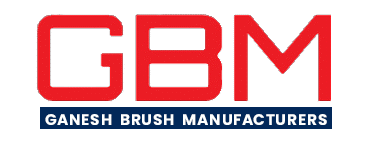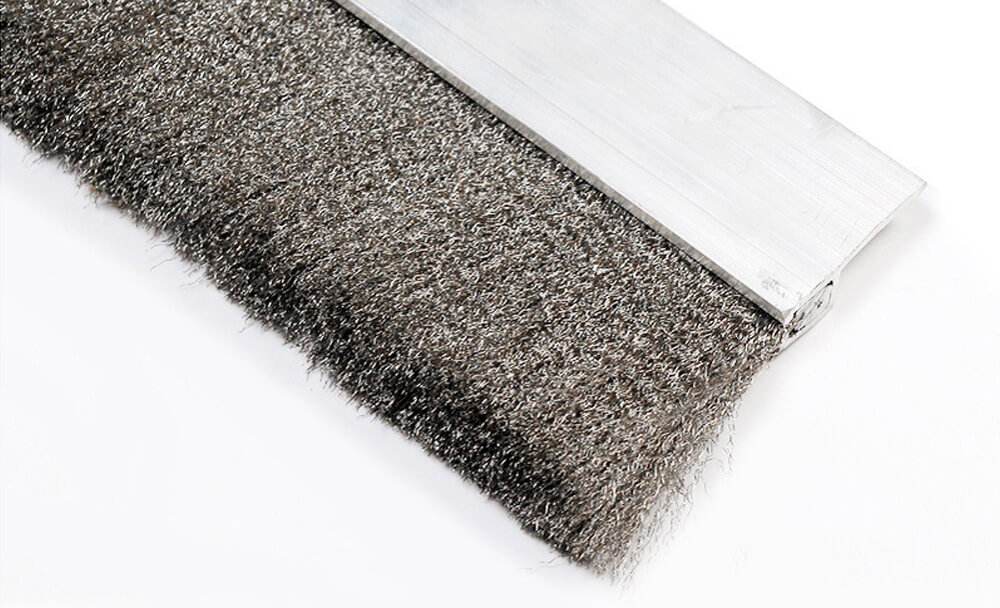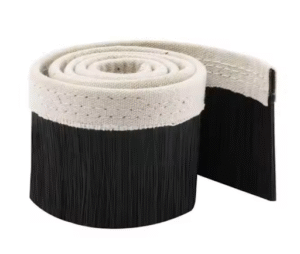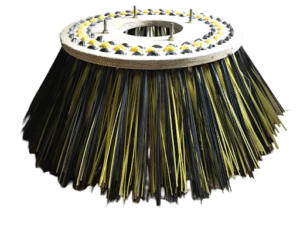If you’ve ever spent time around a factory floor, in a machine shop, or even just near industrial equipment, you’ll know that the smallest tools often make the most significant difference. Strip brushes fall squarely into that category. They don’t shout for attention like heavy machinery does, but when chosen correctly, they keep processes clean, safe, and efficient.
Now, here’s the thing: not all strip brushes are the same. The two most common filament choices, brass and stainless steel, might look similar at first glance, but trust me, they behave very differently. And if you’re sourcing from a strip brush manufacturers or a strip brush supplier, knowing those differences can save you from wasted money, downtime, and a lot of frustration.
So, let’s break it down.
First, What Exactly Is a Strip Brush?
Think of a strip brush as a clever combination of a metal channel and tightly packed filaments. Those filaments can be nylon, natural fibres, polypropylene, brass, stainless steel, you name it. The point is: they’re adaptable.
Depending on how they’re built, strip brushes can:
- Sweep away dirt and dust
- Seal off gaps against light, air, or contaminants
- Remove rust, paint, or burrs
- Help guide materials along production lines
- Even conduct electricity (yes, really)
That versatility is why they’re so widely used. But the magic lies in choosing the right filament material. And here’s where brass and stainless steel go head-to-head.
Brass Strip Brushes: Softer, Safer, Subtler
Picture brass wire as the “gentle but effective” type. It’s not as aggressive as stainless steel, which is exactly why some industries love it.
What Makes Brass Special?
- Non-sparking: Brass is non-ferrous, so it doesn’t spark. That’s a huge win in places like chemical plants, oil refineries, or any environment where one rogue spark could cause disaster.
- Gentle abrasion: Because brass is softer, it cleans without gouging. Think polishing moulds, cleaning softer alloys, or prepping surfaces that can’t afford scratches.
- Corrosion resistance: It holds up against moisture and a lot of organic compounds. Sure, it might tarnish over time, but it’s rarely catastrophic.
- Conductivity: Brass carries electricity well, which makes it handy for grounding and static discharge.
Where Do You See Them?
I’ve seen brass strip brushes put to work in:
- Foundries (cleaning moulds without wrecking them)
- Electrical machinery (as grounding brushes)
- Mines and refineries (non-sparking safety is non-negotiable there)
- Polishing operations where a delicate finish matters
Brass isn’t about brute force. It’s about finesse and safety.
Stainless Steel Strip Brushes: Tough, Relentless, Reliable
Now, stainless steel is the opposite character. If brass is the soft-spoken one, stainless steel is the workhorse that keeps ploughing through harsh environments without complaint.
Why Stainless Steel Stands Out
- Strength to spare: Those wires are harder, sharper, and ready for serious abrasion. Perfect for removing weld slag or burrs.
- Corrosion & heat resistance: Stainless doesn’t flinch in the face of water, chemicals, or high heat. It just keeps going.
- Magnetic (sometimes): Depending on the grade, you might get magnetic properties—handy in some applications, irrelevant in others.
- Low fuss: Stainless brushes resist wear. You don’t babysit them, you just let them work.
Where Do They Shine?
- Heavy-duty cleaning in workshops and plants
- Surface prep before painting or coating
- High-temperature or chemical-exposed environments
In short, if the job is brutal, stainless steel doesn’t blink.
Brass vs Stainless Steel: Head-to-Head
Here’s a quick table I often sketch for clients who are torn between the two:
| Factor | Brass Strip Brushes | Stainless Steel Strip Brushes |
|---|---|---|
| Hardness | Softer, gentler | Hard |
| Corrosion Resistance | Good, but limited with acids/chlorides | Excellent, even in harsh settings |
| Sparking | Non-sparking | May spark |
| Conductivity | Conductive | Non-conductive |
| Surface Suitability | Softer metals, delicate surfaces | Hard metals, robust surfaces |
| Applications | Safety environments, polishing, grounding | Heavy cleaning, de-burring, harsh environments |
So, Which One Do You Choose?
It depends. And I don’t mean that in the vague, consultant-speak way—I mean it literally depends on your environment and goals.
- Got a hazardous area with flammable gases or dust? Brass. Every time.
- Working with delicate surfaces that must stay scratch-free? Brass again.
- Facing weld slag, burrs, or chemical-laden environments? Stainless steel all the way.
- Need long-term durability in harsh conditions? You guessed it: stainless steel.
When I chat with clients as a strip brush supplier, I always ask for specifics: What’s the surface? What’s the environment? What outcome do you need? That’s the only way to recommend confidently.
The Importance of a Good Supplier
Here’s an open secret: two brushes labelled “brass” can behave very differently depending on how they’re made. Same with stainless steel. Quality of manufacture, how the filaments are anchored, and how evenly they’re distributed change everything.
That’s why your choice of strip brush manufacturer matters just as much as the material itself. A trusted supplier won’t just hand you a catalogue; they’ll guide you, customise options, and make sure you don’t end up with a brush that looks right on paper but fails on the job.
Bringing It All Together
So, brass vs stainless steel? It’s not about which one is “better.” It’s about which one is better for you. Brass is safe, soft, and subtle. Stainless steel is strong, aggressive, and long-lasting. Both have their place in the world of brushes for industrial use.
The real key is understanding your environment, your surfaces, and your goals and then matching those to the right brush.
Whether you’re after the non-sparking safety of brass or the unshakable toughness of stainless steel, we’re here to help. As both a strip brush manufacturer and a trusted strip brush supplier, we don’t just sell products; we provide solutions that work in the real world.
If you’re looking for high-quality brushes for industrial use, visit us at Ganesh Brush Manufacturers. Let’s talk about your challenges and find the brush that makes life easier.





